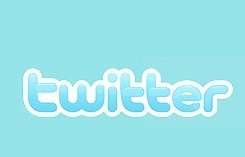What Twitter learned from Facebook IPO flop

The day before Twitter Inc. disclosed that it has filed papers for an initial public offering, Facebook Inc. Chief Executive Mark Zuckerberg was asked what advice he would give to the microblogging site about going public.
Obviously referring to what's now remembered as a flop of a public trading debut, Zuckerberg quipped at the TechCrunch Disrupt conference in San Francisco that he was "the last person you'd want to ask about how to make a smooth IPO."
In fact, Twitter appears to have learned key lessons from Facebook.
The biggest one is focused on a question that beset the Menlo Park, Calif. social media giant in the months leading up to its IPO: Can it make money from mobile?
That's not a concern today given Facebook's rapidly growing mobile business, which now makes up 41 percent of the company's total ad revenue, up from essentially zero a year ago.
But it was such a huge concern last year that Facebook disclosed in IPO filings that its ability to grow its mobile business was "unproven."
That's a hurdle Twitter has to show it can clear, said Howie Schwartz, CEO of mobile ad company Human Demand, who said Facebook suffered from its "lack of vocalizing a strategy initially around mobile advertising."
"I think we're going to see a similar concern around Twitter," he told MarketWatch. "But I think Twitter has the opportunity to learn from those market reactions related to Facebook."
"Facebook was punished for not having mobile set up," he added. "Facebook has been slower. We think Twitter can be faster."
This was perhaps underscored by news this week that Twitter has agreed to buy the mobile ad exchange company MoPub. That purchase, Schwartz said, "is a statement to the market that Twitter is going to 'get' mobile ads faster than Facebook has to date."
Twitter's user base is dwarfed by Facebook's: Twitter says that it currently has 200 million active monthly users, while Facebook has put its number at approximately 1.2 billion monthly users.
But Twitter appears to have a solid advertising business, with total revenue expected to grow from $583 million in revenue this year to nearly $1 billion in 2014, according to estimates from eMarketer.
"Much of Twitter's growth comes from its strong mobile business," eMarketer Vice President Clark Fredricksen said in an email. "More than half of the company's ad revenues are expected to come from mobile ad revenue this year, both in the U.S. and globally."
David Rogers, director of Columbia Business School's digital marketing program, said mobile is "actually a key strength" for Twitter.
"Twitter is a 'mobile-first' business, and has been from the start," he told MarketWatch. "There's no need for them to pivot, to figure out mobile, the way Facebook had to do after its IPO."
He continued, "The whole Twitter experience grew up on mobile devices, and its advertising products are designed for mobile as well. So this should build investor confidence, and leverage the current excitement around investing in mobile technology companies."
Twitter has been highlighting the way companies have successfully used Twitter for ad and marketing campaigns.
Two weeks ago, Twitter blogged about car maker Honda's campaign asking Twitter users to share on Twitter and Vine, the site's video-sharing feature, why they were in the market for a new car.
Twitter also has featured guest posts from executives including Coca-Cola's Wendy Clark, who called Twitter "the zeitgeist of our core target - teens and young adults."
These efforts appear to be based on Facebook's own pre-IPO struggles in projecting its advertising potential to businesses - a problem that turned into a public-relations embarrassment when General Motors announced just days before the Facebook IPO that it was pulling from the site because they didn't work.
To be sure, Twitter has had some problems with the high-profile hacking of the accounts of some famous brands, including Burger King and Jeep.
But Darren Heffernan, chief financial officer at Trintech, a financial software company, also noted how Twitter has put a lot of emphasis on how companies can use the site to communicate directly with customers.
"While they had a lot of celebrities build up the brand, I think they realized, "We can probably make more money from this by having businesses utilize it more,' " he told MarketWatch.
But Heffernan also warned that "markets are very unforgiving," adding, "If you say you're going to do X, and you do Y, they're going to hammer you. That's what happened to Facebook."
Beyond proving its ability to make money, Heffernan said Twitter must focus on the process of going public itself, citing lessons from Facebook's IPO.
He said Facebook's decision to boost the available shares before the IPO "created a lot of uncertainty for investors." And Twitter should also be cautious about pricing.
"My advice to Twitter is you have to make sure you get the price right and the economics of the demand and supply," he continued.
Rogers of Columbia University also spoke to this point, saying, "I think the lesson from Facebook's IPO is: Don't be too greedy."
"If you are a new company, with a lot of speculative excitement about future, but so far unseen, sources of revenue - you may not want to squeeze every last dollar out of that speculative frenzy on Day One," he said.
©2013 MarketWatch
Distributed by MCT Information Services




















